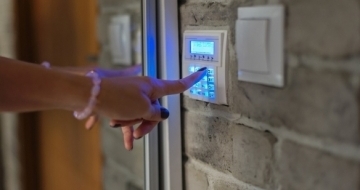A Few Important Basics of Installing the Good Alarm Systems
Alarm systems are a crucial part of the home and residential security set up for flawless safety purposes. To travel outside with peace of mind, there has to be a secure feeling of the home being protected. Dealing with burglaries and theft can be effectively dealt with when the security systems are appropriate. Alarm system installation is a great investment to keep the property secured.
Making the Correct Choice
The constituents of a basic alarm system are door and motion sensors, keypad, internal and external sensors, and a security panel. Along with these, one can even choose to add more sensors like outdoor beams, glass breaks, roller doors beams, and curtain sensors to provide you with a comprehensive security system.
At the time of alarm installation, make sure to ask the professionals about the purpose of all these components for your own needs.
The basic alarms could be too small containing one or two motion detectors and these are connected up with the internal and external sirens. These are connected right through the sensors containing sensors on the windows as well as the entry points - which are armed in the stay mode. Although the movement within the house will not be detected yet the entry through the given perimeter will not escape the detection. Thus, all the options must be considered while installing a burglar alarm system.
Considerations for Alarm System Installation
The Types of Alarm Systems
The important considerations to take into account at the time of choosing the home alarm systems starts with the type of residential or business alarm system suitable to the needs. These could range from wireless ZigBee or wireless 433mhz, hard-wired and zwave systems. The hard-wiredsystems need no batteries for overtime replacement but these are labor-intensive at the time of installations, especially for the double storey houses or lack of ceiling access to run the cables. Alternatively, the wireless systems are economic and less labor-intensive during initial installation, while it requires frequent servicing compared to the hard-wired alarms in the form of battery changes along with potential interference through the surrounding same frequency operating devices.
Monitoring Options
When the alarm is activated, it will serve its functions of notifying you. The professionally monitored security alarm systems by security control rooms for 24/7 are of utmost help as they are ready to take immediate action within a few seconds.
These monitoring systems are designed for the homeowners to receive the automated text messages of the notifying sensors on the alarm systems as these are activated.
Design and Capabilities of the Alarm System
Panel input capacity is the prime consideration as well as adding more sensors down the track for upgrading the panel. Hence, the right decision is to select the alarm system having the right amount of zones, and adding more five to the count of windows and doors for maximum sensors. In fact, there are more initial considerations like:
- The remotes for arming and disarming the alarms
- The alarm system has to support the IP modules and the push notifications
- Reliability of the manufactures for the wireless equipment
- The wireless detectors suiting to the needs when the wireless alarms are chosen
- Warranties the manufacturers provide
- Integrating the CCTV into the alarm system
- The alarm system supporting home energy management
While installing the alarm system is crucial to the safety of both the residential and commercial properties, equally important is keeping the basics in mind while installing them. No wonder it has to be professionally done, while as the property owner you have to be cautious to gather the information from them regarding the functions of each component.

